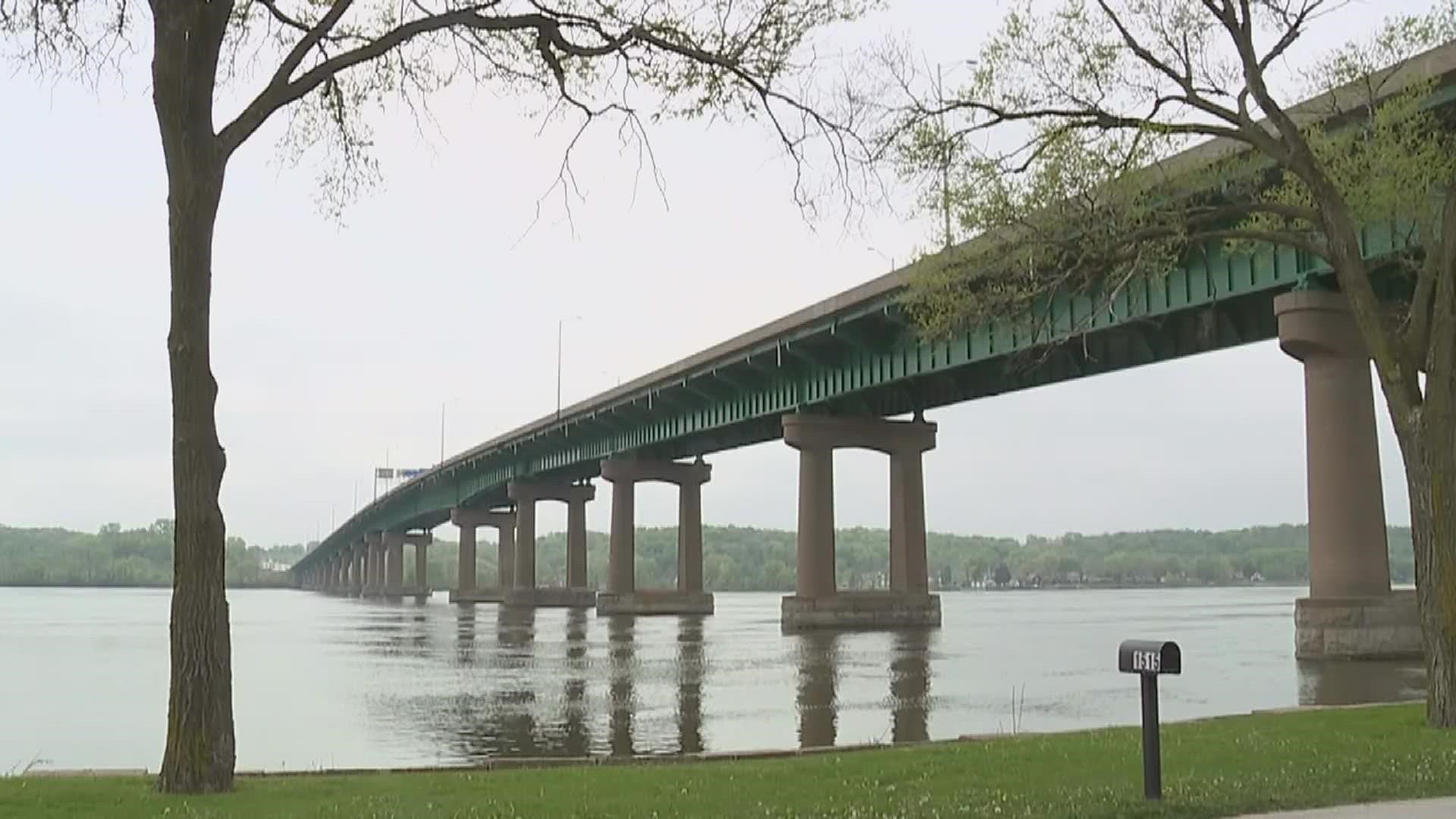ROCK ISLAND, Ill. — Illinois and Iowa could receive billions of dollars over the next five years in federal infrastructure funding, if the Infrastructure Investment and Jobs Act is passed.
It's unknown right now how much federal funding the Quad Cities could receive from the bipartisan infrastructure deal. The U.S. Senate previously approved the $1 trillion package 69-30, but they're still awaiting a vote in the House.
"If we get the additional funds, that's great," said Gena McCullough, the Assistant Executive Director and Planning Director at Bi-State Regional Commission. "We'll go through our programming process for the funds that come down to the Quad Cities."
The bill would add $550 billion in new federal spending. The largest amount of money, $110 billion, would go toward rebuilding roads and bridges. The measure would also provide $65 billion to expand high-speed internet access, $25 billion for airports and $66 billion in new funding for Amtrak.
Additionally, it includes $73 billion to update the nation's electricity grid so it can carry more renewable energy, $7.5 billion to construct electric vehicle charging stations, $17.5 billion for clean buses and ferries and $15 billion for removing lead pipes.
According to McCullough, one of the things the Quad Cities needs the money for is for repairing old roads and bridges such as I-80 and the Centennial Bridge.
"They need that routine maintenance, and if they don't see that, if it's deferred, then those structures start to deteriorate more quickly, and get to the point where they fail," McCullough said. "What we'd like to see is before things fail, that we're making improvements."
According to the White House, over the next five years, Illinois could get $9.8 billion for federal-aid highway apportioned programs and $1.4 billion for bridge replacements and repairs.
Iowa could get $3.4 billion for federal-aid highway apportioned programs and $432 million for bridge replacements and repairs. It's important to note that these numbers could change though.
Both states, "can also compete for the $12.5 billion Bridge Investment Program for economically significant bridges and nearly $16 billion of national funding in the bill dedicated for major projects that will deliver substantial economic benefits to communities," according to the White House.
McCullough explained that one third of the roads here are eligible for federal funding, while the other two thirds are paid for by local jurisdictions, so money from the infrastructure bill could mean saving local tax dollars for other roads that need fixing.
"If a third of those funds we can receive federal money for, it will reduce the amount of money that we're putting towards those roads that are classified as those higher level roads, and we can put them toward our local roads," she said. "Overall infrastructure is important because it provides the base to our economy."
She added there are infrastructure repairs the Quad Cities would like to make, but it's hard to do so without the necessary funding. Funding that hasn't been available to meet all of their needs.
"We do a long range transportation plan every five years, the communities prepare comprehensive land use plans to identify where they'd like development to occur," McCullough said. "Then we have all of these kinds of documents ready to go, so that when funding does become available, communities can prioritize, 'Well, what is our highest priority of the projects we've identified that we'd like to put this money to?'"
One of the reasons the roads here are starting to fail is because of the climate freezing and thawing, McCullough said.
"Within the last year, we've prepared an extreme weather resilience report that kind of identifies what roads in our metropolitan area would be considered critical facilities and would be vulnerable to extreme weather," she said. "It's keeping those kinds of things in mind as we move forward."
Other things they're keeping in mind are air quality and electric vehicles. The Air Quality Task Force is looking at the amount of emissions let into the air, and the Electric Vehicle Readiness Plan is helping them get ready for when more people might choose electric vehicles over gas powered cars.
According to White House estimates, Illinois and Iowa would also both receive a minimum of $100 million to help provide broadband coverage across the states. This would provide access to at least 228,000 Illinoisans and 74,000 Iowans who currently lack it.
Congresswoman Cheri Bustos (D-IL 17th District) told News 8 Monday that "passing this infrastructure bill is critically important."
The White House said both Illinois and Iowa have suffered from a systemic lack of investment. In fact, the American Society of Civil Engineers gave Illinois a C- grade on its infrastructure report card, and Iowa was given a C.
Click here to see the potential breakdown of funding from the Infrastructure Investment and Jobs Act for Illinois, and here for Iowa.

